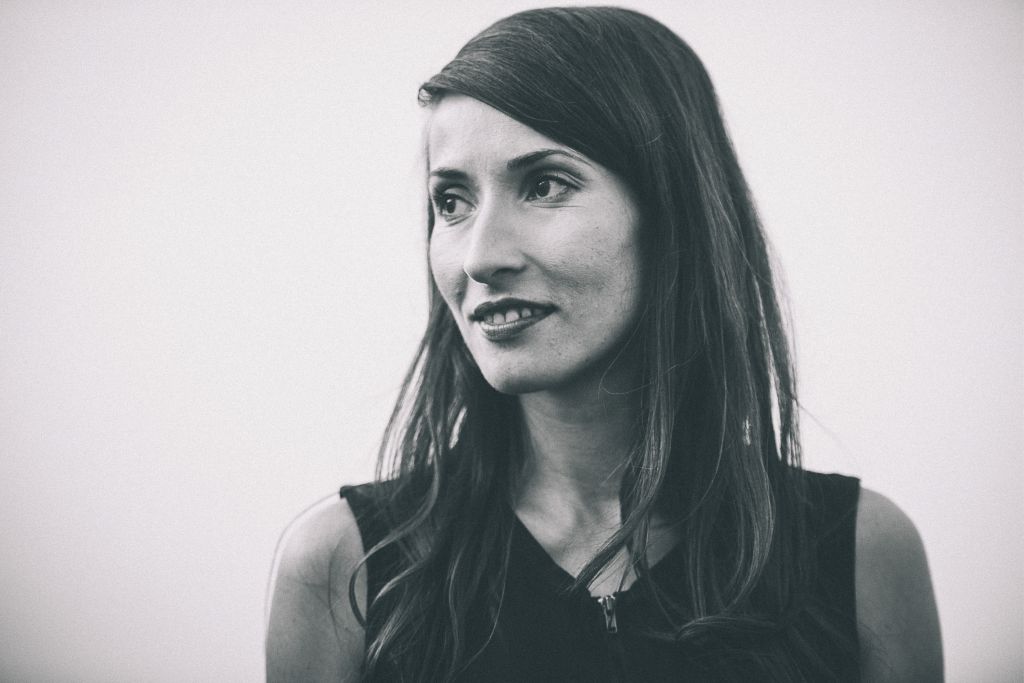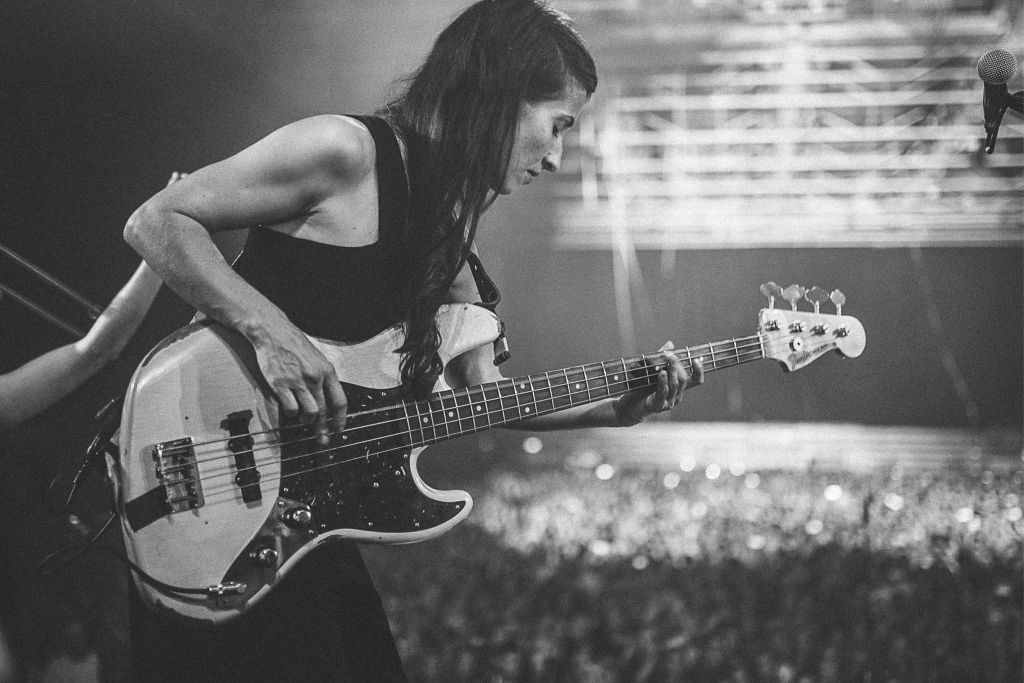This versatile artist gathered her initial experiences with community outreach during a voluntary social year in Costa Rica. And by now, she can look back upon numerous successful projects—like developing the All Stars Inclusive Band (the mdw’s first inclusive ensemble) and assuming musical direction of the Wiener Festwochen festival opener.

“My experience in Costa Rica turned lots of things upside down for me, and it’s had a huge impact on where my life’s gone since then,” states Marlene Lacherstorfer. Immediately after completing school with her Matura in 2002, the Upper Austria native joined a social work project for which she travelled to a small refugee village where she helped establish a preschool. While there, she also co-organised an arts festival, and she spent the rest of her time making music and dancing cumbia with the village residents, teaching English in indigenous regions of Panama, and performing with multinational street music groups.
Born into a family that was enthusiastic about musicmaking, Lachersdorfer got to know various instruments and musical styles quite early in life. “My sister and I did regular multi-part singing with our grandparents. And later on, as teenagers, we performed together with our parents.” In her family, music and dance were viewed as essential nutrients for education and personal development. “Making music was part of our everyday lives—with the focus always being on enjoyment rather than perfection.”
Art is an ideal medium when it comes to breaking down barriers and reaching lots of different people independent of their social and cultural identities and backgrounds.
At age 17, she discovered her love for playing bass—a passion she’s pursued to this day. “What I like about the electric bass is that I can move around on stage and interact physically with my colleagues. I like it when I can feel the music in my body, when it’s loud and ecstatic. Just like I also get a lot out of the soft, velvety sound of the double bass, which I only took up later on through my involvement with Alma.” Soon, Marlene Lacherstorfer got noticed in Vienna as a bassist and started getting one gig after the other, which moved her to enrol in the Department of Popular Music’s Music Education for Voice and Instruments degree programme as an electric bass major on top of her studies in the mdw’s Music and Movement Education/Rhythmics programme. “I hadn’t actually planned on becoming a professional bassist—that happened on its own. All I did was happily answer fate’s call, so to speak. Since then, I’ve thought of myself as a bassist and as a music and movement educator in equal measures.”
What I think is special about bands and other ensembles is that they develop common visions, stick together, and take full advantage of the possibilities of intercultural communication.
In 2010, having completed two bachelor’s degree programmes, Lacherstorfer received her first teaching contract at the mdw’s Department of Music Education Research, Music Didactics and Elementary Music Education. She was then asked by mdw faculty member Helga Neira Zugasty to join her in co-founding the All Stars Inclusive Band, which she did—taking charge of its artistic leadership and pedagogical guidance. She sensed that this band project would be an opportunity to work in an inclusive way where she could bring all of her varied interests and talents to bear. “The prospect of leading a large, colourful mdw ensemble that’s focused on socio-pedagogical goals, on enjoyment, and on experiencing music with one’s body as well as audience interaction at performances was something that really appealed to me. Which is to say that ‘achievement’ here would mean something other than its classic definition at a university of music.” In 2016, her six and a half years of work on developing this band were ultimately honoured by a Diversitas Prize for efforts towards inclusion at tertiary-level educational and research institutions. “The fact that the All Stars Band was recognised with a Diversitas Prize while I was leading it means a whole lot to me. It was a welcome bit of recognition for having put a ton of work and energy into a project that was pioneering in terms of inclusive practice at the mdw and incorporates lots of attention to detail, experience, and elements of my own personality. And thanks to this award, it was also possible to drive forward lots of important processes at the mdw—like the Diversity Strategy.”

In 2016, Marlene Lacherstorfer turned over leadership of the All Stars Inclusive Band to a successor and began pursuing new challenges. One the evening of the final examination for her master’s degree in Music and Movement Education/Rhythmics, she’d received an invitation to join the live band of Clueso, one of the most successful German singers and rappers. And just one year later, Lacherstorfer found herself leading his band. “As a woman, I’ve experienced the interactions I’ve had in this male-dominated field of pop as being very respectful in character—and I’ve been able to learn a lot about intra-team communication and team leadership. What I like about Clueso in particular is the open, improvisatory way he deals with lyrics, music, styles, the audience, and also generally with people: his own community has always been very important to him.” In her ensemble work with this stage band and with soloists, the trained educator aims for respect and positive interaction. “As bandleader, I always have a concept ready—but I make it a point to start by working in my colleagues’ suggestions.”
It was the utopian vision of everyone being able to learn from everyone else, regardless of how different their respective starting points might be, that inspired me to develop a concept for an inclusive big band.
In 2019, this successful artist became the first woman to assume musical direction of the opening event of the Viennese culture festival Wiener Festwochen, with its theme of Keine Angst [No Fear], on Vienna’s Rathausplatz; it was devoted to the creativity of Viennese women with and without migratory backgrounds on the occasion of the hundredth anniversary of women’s suffrage in Austria. This programme was performed a second time in a sold-out guest appearance at Hamburg’s Elbphilharmonie as part of that institution’s Vienna-centred Ganz Wien Festival. “Particularly as a bandleader and musical director, I’ve been able to use a lot of what I developed with the All Stars Band in large professional productions.”
Due to the COVID-19 mitigation measures, this mdw alumna is currently spending more time on her own artistic creativity. “In my ensemble Alma, we’re hard at work on an anniversary programme for which I’m in the process of composing several pieces of music. I also just filmed and edited an analogue performance video for the artist Pressyes. And I’m spending the rest of my time developing a musical and performative vision of my own.”

